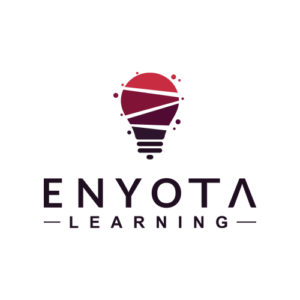eLearning's Role In Avoiding HR Obstacles
The booming global economy has encouraged businesses to expand their offerings. However, alongside the positives this brings, organizations also must navigate the obstacle of managing their most coveted resource—Human Resources.
1. Creating The Ultimate Onboarding Experience
Employee onboarding is not just an orientation activity. It defines the tone and pace for employee engagement. Since onboarding is repeated, it is considered a time-consuming and effort-intensive pursuit for most organizations. Moreover, it is one training that is often not customized nor personalized. However, using eLearning, organizations can create a more meaningful onboarding experience. One that is engaging and long-lasting in the minds of learners. And, if you look at it from an HR's point of view, eLearning, once it is created, just needs to be deployed as many times as needed over an LMS account that is created for each new employee. There is no manual repetition of tasks and actions involved here.
2. Skills Gap Barrier
As technology rapidly evolves and updates, many companies are feeling the heat of a widening skill gap. When organizations are scurrying to achieve complete digitization, it comes down to the HR departments being hyper-focused on hiring the right employees with the desired skill sets. And once hired, it is also the HR's responsibility to train or upskill their existing employee base. All companies will become tech companies sooner than later. It is here that HR teams have to ensure that each employee, right from the entry-level to the C-suite, is tech and data literate. Traditional training can't meet these needs because it is time-consuming and also effort-intensive. Add the impact of downtime on productivity and you'll see why most traditional training programs fail to deliver.
HR departments use customized learning programs as the means to train their employees. These courses are packaged into micro-formats for better retention, eventually enabling anywhere, anytime access and pushing enablement closer to work.
3. Improving Training Outcomes
HR departments are also pressured to ensure increased active participation in their training programs. Some employees understand the need for training to advance their careers, however, training programs during work hours can affect productivity. Employees want the flexibility to learn, like field sales staff who are out in meetings all day and find it challenging to attend traditional classroom training programs. eLearning, however, is all about learning at your own place and time, and so it is almost always preferred by learners.
eLearning also results in better training outcomes, as it reduces the cognitive load on employees. It may be challenging to absorb, retain, and then apply all the information during a single intensive day-long training program. Whereas, eLearning employs elements like video, gamification, etc., to reduce cognitive overload, allow better knowledge retention, and enable better knowledge implementation.
4. Training The Modern Employee
HR is trying hard to create a culture of continuous learning. And training is what helps HR keep employees engaged, loyal, and stimulated for better performance. Moreover, these elements directly impact the bottom line. Training can only be effective when it is both engaging and relevant. And, HR departments need to keep in mind the growing millennial population in every workplace, as these employees' expectations are very different from their employers'. They want relevance in everything. Also, equipping them with the right learning resources for impactful outcomes allows them to learn on the go. Therefore, dynamic learning initiatives are imperative in keeping this generation engaged and productive.
Using eLearning, HR departments can also measure employee progress, identify areas for improvement, monitor progress, and provide feedback. All these positively impact training outcomes.
5. Maneuvering Compliance Obstacles
Globalization has impacted every aspect of modern business. Organizations ensure their employees are completely aware of the compliance and regulatory landscape in order to stay on the right side of the law. Compliance learning adds pressure on HR departments. Moreover, when done in the classroom, it appears as a huge productivity drain. These trainings are also considered boring, and low engagement during such trainings is almost always common.
By using eLearning, HR departments can roll out compliance training quickly and also ensure that compliance is more interesting and engaging. Compliance training can benefit from the use of storytelling, gamification, video, etc., to make learning more effective, engaging, impactful.
As organizations have evolved, owing to the digital impact, training initiatives from HR need to evolve and meet the needs of this new, tech-driven age. eLearning can become a valuable weapon to help them meet these challenges and drive a new wave of efficiency and productivity. An engaged workforce will then emerge as a consequence of these initiatives.








